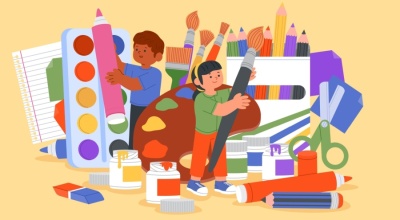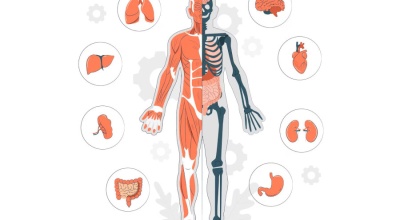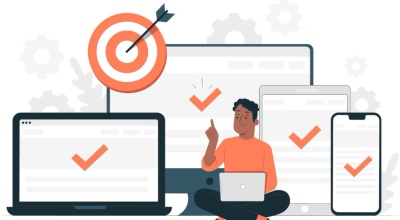Download free personal forms or if you’re missing important documents, now’s the time to replace them. Find out how to replace vital documents, such as birth certificates, Social Security cards, and more.
Replacing all important documents that were lost or destroyed in a flood, fire, or other disaster can be overwhelming. Although the process varies from state to state, these general steps can help you get started.
The federal government does not distribute certificates, files, or indexes with identifying information for vital records. Applications for passports can be obtained through the U.S. State Department
Vital Records
- Replace Lost or Stolen Identification (ID) Cards
- Vital Records Documents Issued in the United States
- How to Replace Your Lost or Destroyed Vital Records
- Get a Copy of Your Birth Certificate
- Request a Replacement Marriage Certificate
- Request a Certified Copy of a Death Certificate
- Divorce Decrees and Certificates
What To Expect When Ordering Vital Records Online.
Contact State Vital Records Office
Learn financial preparedness, gather financial and critical personal, household, and medical information before a disaster. Natural disasters can happen anywhere, but you can protect yourself and your finances by planning. A disaster can delay mail for days or weeks, start using electronic direct deposits.
Steps to Financial Preparedness
A weekend of preparation now can save you months of frustration and lots of money.
- You never know when a disaster will happen. You can prepare by setting aside money in a rainy-day fund. Learn more financial preparedness tips: #FinancialFuture2019
- Saving is the best financial defense against disasters. A little bit at a time can go a long way. USA.gov/flec #FinancialFuture2019
- Do you have all the documents and digital copies you need to protect yourself after a disaster? Use the checklists in the Emergency Financial First Aid Kit (EFFAK) and see if you are missing anything: #FinancialFuture2019
Associated Content, Information, and Resources
Insurance
What Should I Know About Flood Insurance? Protecting yourself today means knowing what to do when a flood is approaching your home or business.
- Before disaster strikes, review your #insurance coverage. Insurance is the fastest way to recover after a disaster.
- Where it rains it can #flood. One inch of water in your home can cost $25,000 in damage. Do you have flood insurance? ;
- Homeowners and renters insurance do not typically cover flood damage. Contact National Flood Insurance Program Help Center at 800-427-4661. Talk to your agent for your existing policy and ask about flood insurance. #FinancialFuture2019
- Documenting your private property can help #insurance claims in a disaster. Take this free action now and protect yourself later. #FinancialFuture2019
- Financial Preparedness Toolkit
- Operation Hope
- Download the FEMA mobile APP
- National Flood Insurance Program
- DisasterAssistance.gov
- Financial Literacy Education Commission
- MyMoney.gov
- ConsumerFinance.gov
- Get Tech Ready
ConsumerFinance.gov has the information you need to plan and help safeguard your financial future in a disaster. Whether you are at risk of hurricanes, tornadoes, blizzards, wildfires, or earthquakes, here are three steps you can take right now to protect yourself financially and weather any storm.
The first step you can take is to download FEMA’s Emergency Financial First Aid Kit and fill it out. Once you complete the kit you will have everything you need in one place.
The next step is to find a safe space to store the kit and the documents you gathered. Lastly, make sure you understand your insurance options, and the extent of your coverage in case of a disaster. Renter's, homeowner's, and auto insurance policies generally don’t cover all aspects of a disaster. You may also need to investigate specialized coverage like earthquake insurance and flood insurance.
Americans at all income levels have experienced the challenges of rebuilding their lives after a disaster or other emergency. In these stressful circumstances, having access to personal financial, insurance, medical, and other records is crucial for starting the process of recovery quickly and efficiently. Taking the time now to collect and secure these critical records will give you peace of mind and, in the event of an emergency, will ensure that you have the documentation needed to start the recovery process without delay.
- Gather financial and critical personal, household, and medical information.
- Consider saving money in an emergency savings account that could be used in any crisis. Keep a small amount of cash at home in a safe place. It is important to have small bills on hand because ATM’s and credit cards may not work during a disaster when you need to purchase necessary supplies, fuel or food.
- Obtain property (homeowners or renters), health, and life insurance if you do not have them. Review existing policies for the amount and extent of coverage to ensure that what you have in place is what is needed for you and your family for all possible hazards. Homeowners insurance does not typically cover flooding, so you may need to purchase flood insurance from the National Flood Insurance Program.
At Home
Using FEMA’s Emergency Financial First Aid Kit (EFFAK) as a guide, or by downloading a secure mobile app on your phone, store important documents either in a safety deposit box, an external drive, on the cloud to make it easy to access during a disaster.
Having your financial and medical records and important contact information will be crucial to help you start the recovery process quickly. Take time now to safeguard these critical documents.
Household Identification
- Photo ID to prove identity of household members
- Birth certificate to keep or re-establish contact with family members
- Social security card to apply for FEMA disaster assistance
- Military service
- Pet ID tags
Financial and Legal Documentation
- Housing Payments to find financial records and obligations
- Insurance policies to re-establish financial accounts
- Sources of income to keep payments and credit
- Tax statements to provide contact information for financial and legal providers & apply for FEMA disaster assistance
Medical Information
- Physician information to provide doctors with health information if medical care
- Copies of health insurance information to ensure existing care continues uninterrupted
- Immunization records
- Medications
Insurance Information
Having insurance for your home or business property is the best way to ensure you will have the necessary financial resources to help you repair, rebuild, or replace whatever is damaged. Document and insure your property now.
Household Contact information
- Banking Institutions
- Insurance agent
- Health professionals
- Service providers
- Place of worship
Get your benefits electronically
A disaster can disrupt mail service for days or weeks. If you depend on Social Security or other regular benefits, switching to electronic payments is a simple, significant way to protect yourself financially before disaster strikes. It also eliminates the risk of stolen checks. The U.S. Department of the Treasury recommends two safer ways to get federal benefits:
- Direct deposit to a checking or savings account. Federal benefit recipients can sign up by calling (800) 333-1795 or sign up online
- The Direct Express® prepaid debit card is designed as a safe and easy alternative to paper
Public Downloads
All items are free to view, share, and download.
Public Downloads - Español (Spanish)
When available, we provide all our content with a Spanish version in our public download section. You can find additional material from sources listed in all our articles.
Download Personal Forms
Download Organ Donation Content
Download Parent Guides
Playlist: Danger Rangers
Seven animal heroes called the "Danger Rangers," their robot Fallbot, and their artificial intelligence called SAVO teach children about safety through examples, such as environmental hazards and unsafe places.














